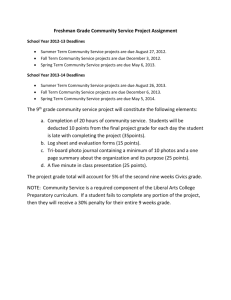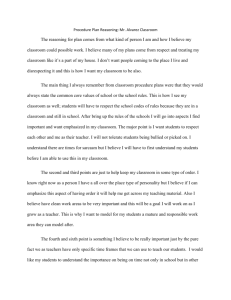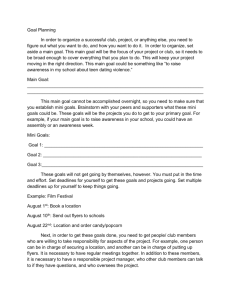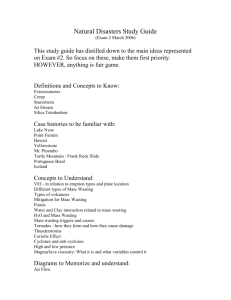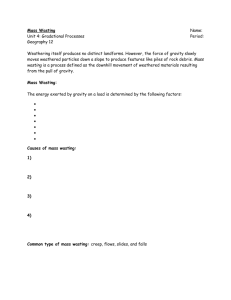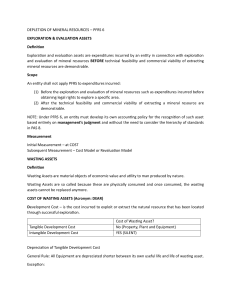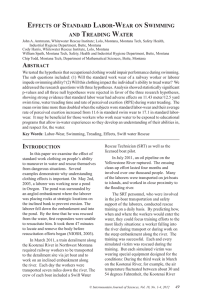Time Management - El Centro College
advertisement
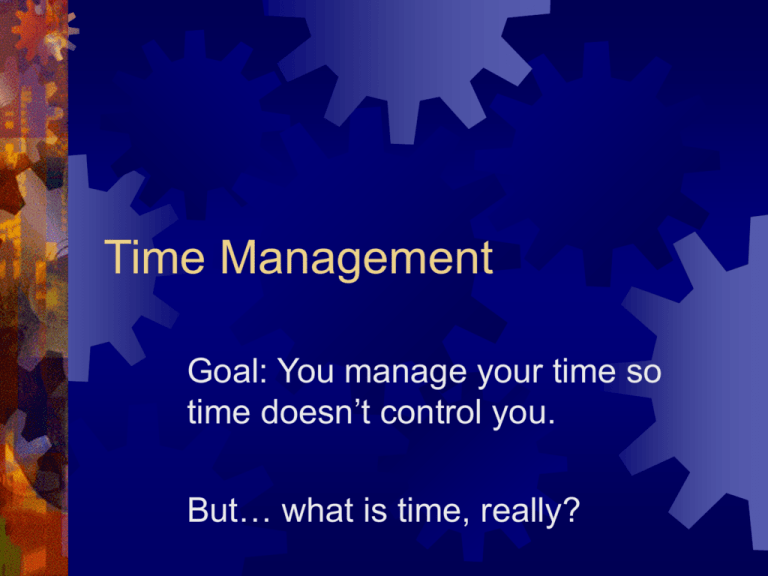
Time Management Goal: You manage your time so time doesn’t control you. But… what is time, really? If TIME is LIFE And LIFE is TIME, wasting time means wasting life. What kind of time manager are you? 1. 2. 3. 4. 5. I think daily planning guides are a waste of time. My academic goals are pretty clear to me. Leaving assignments until the last minute is big problem for me. I organize time very well. I wish I were more motivated. Yes No Yes No Yes No Yes No Yes No Continued… 6. 7. 8. 9. 10. It’s easy for me to cut short visits with people who drop by when I’m studying. Visitors should feel free to see me whenever they want. I know which activities in my life are important and which ones aren’t. I’m a perfectionist in everything I do. I have enough time for leisure activities. Yes No Yes No Yes No Yes No Yes No Scoring Odd Numbered Statements 1 pt. for each YES Even Numbered Statements 1 pt. for each NO 1-2 You’re on top but can still improve 3-4 You’re treading water 5-7 Managing time well is a problem 8-10 You’re on the verge of chaos! Time Management enables you to: Achieve more: So you can get the most out of your academic career. 2. Have more free time: So you can participate in activities that are important to you. 3. Lead a balanced life: So you can better enjoy work and play. 4. Meet deadlines. 1. You owe it to yourself to use time well! How you use your time reflects the kind of person you are and want to be. If you care about your future then you’ll care about the way you organize your time. Avoid Feeling Overwhelmed List all of your tasks and projects. Assign priorities. Once you’ve decided what is most important, FOCUS on doing it and plan your week (or month) accordingly. Example… Know your “peak times” “High Energy Times” Have the most energy Feel the most productive Think most clearly “Low Energy Times” Fade quickly Have the least energy Feel less alert When are yours? How to schedule 1. Use a planning guide Buy or make your own weekly planning guide. Schedule key events, projects, deadlines, etc. What you use for planning is not as important as making use of it. 2. Divide and conquer Make your work manageable. Divide large tasks into several smaller parts and complete one at a time. 3. Focus on Goals Don’t lose sight of your larger goals and aims. Know the big picture! 4. Be Realistic So now you have a schedule. How do you stick to it? Before making new commitments, physically block out the time on your schedule—can you really fit in the new task? Once begun is half done. Control internal and external interruptions. Reward yourself for staying on schedule. Better Skills Lead to Better Grades Visit your El Centro College Learning Center (Room A350) for more information on study skills, tutoring, and time management.

